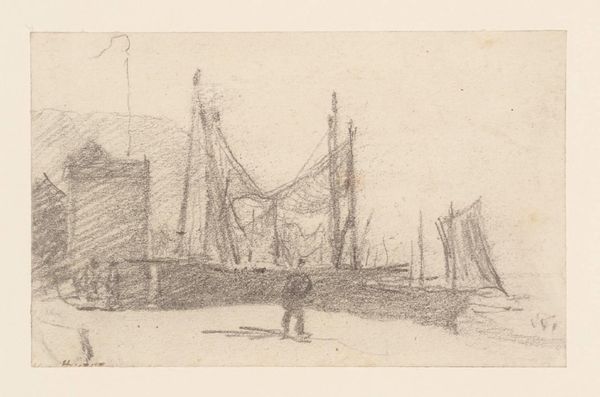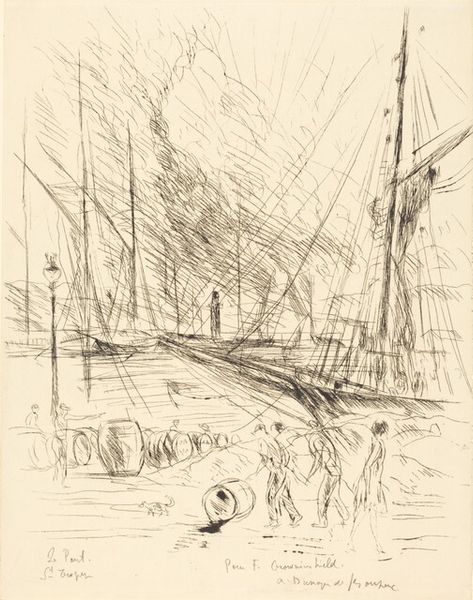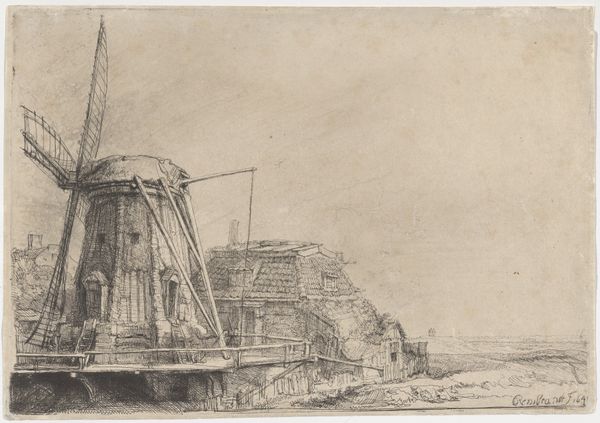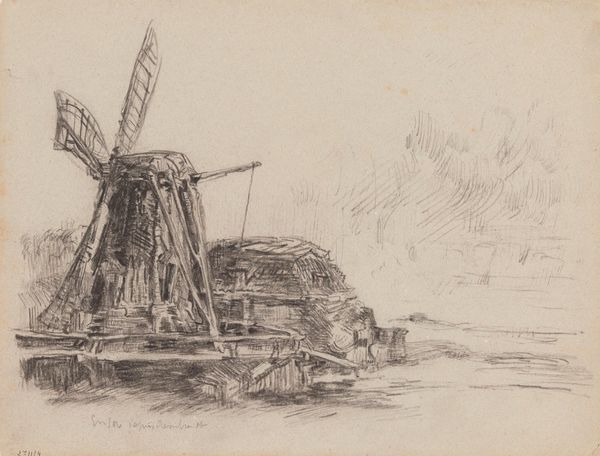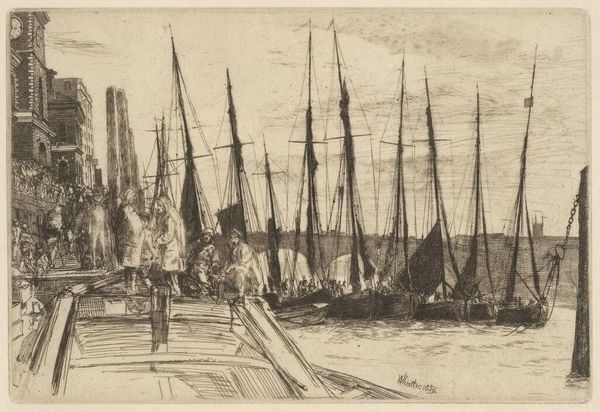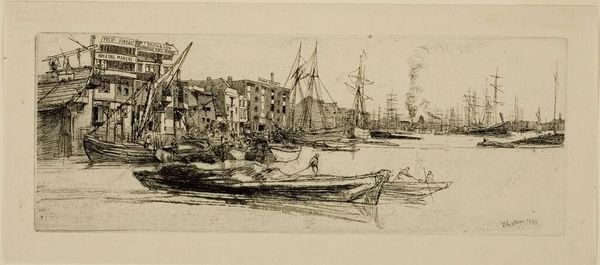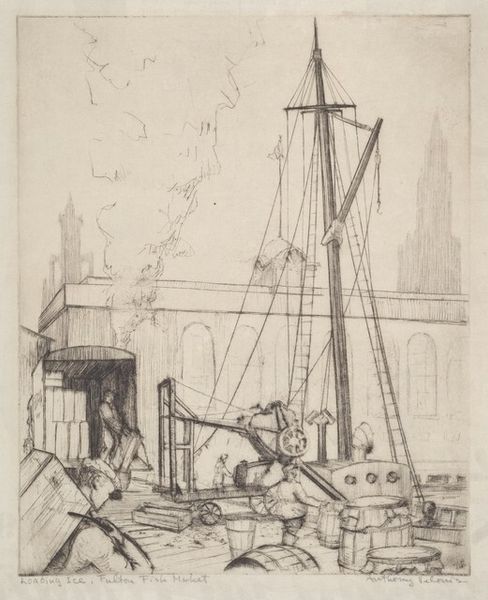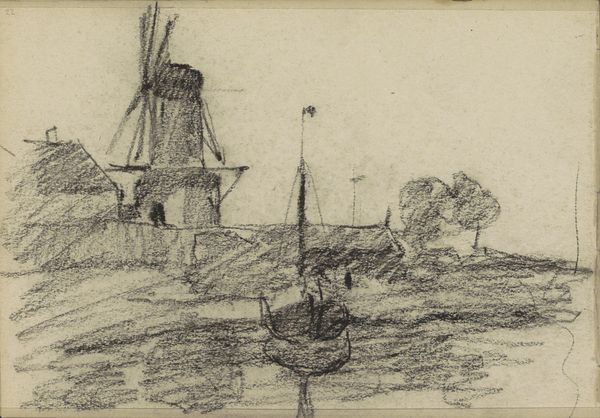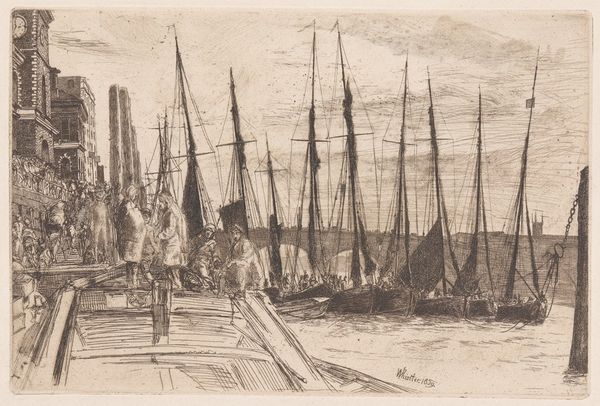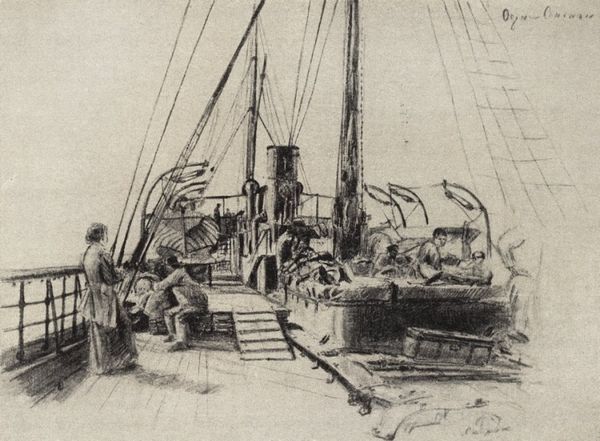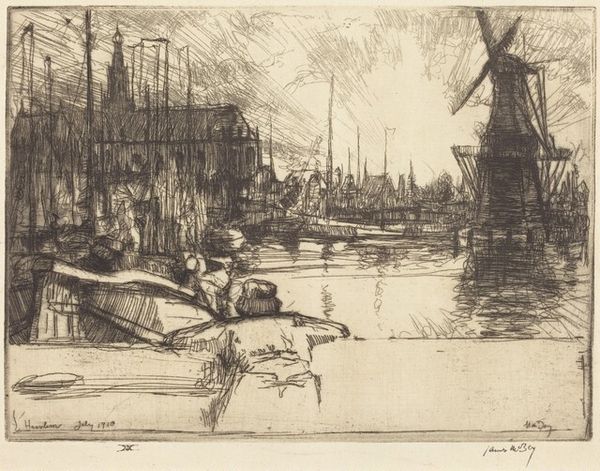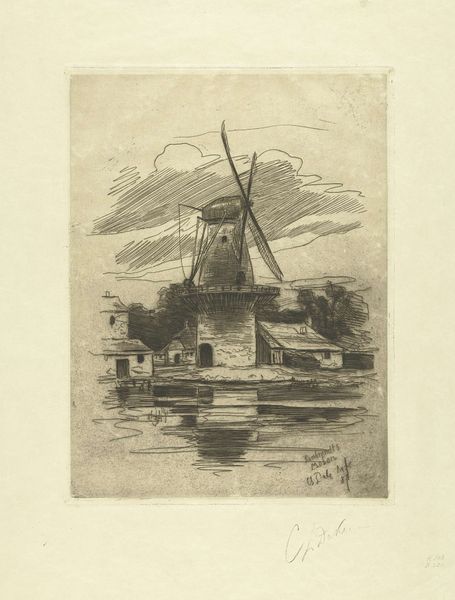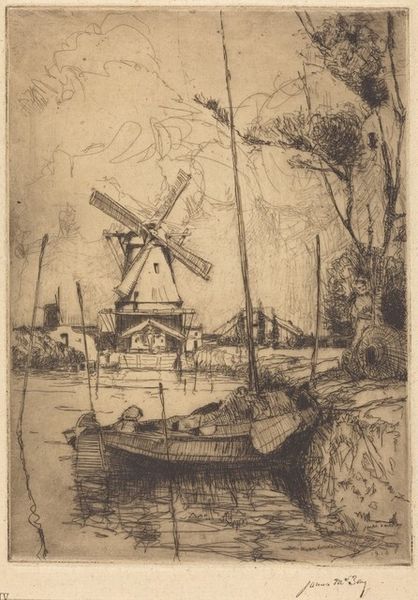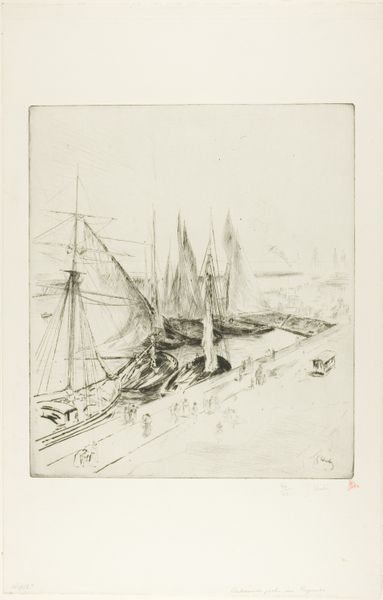
print, etching
# print
#
etching
#
landscape
#
cityscape
#
modernism
#
realism
Copyright: National Gallery of Art: CC0 1.0
Curator: This etching is titled "The Mill, Zaandijk," crafted by James McBey around 1910. It's a fantastic example of early 20th-century printmaking. What's your immediate take? Editor: Well, I’m immediately struck by the way McBey used the etching technique, the cross hatching gives the work a grey scale range that's really impressive. Curator: Indeed, the textural variety achieved through the etching process—the layering, the density of lines—it really lends itself to capturing the rough-hewn nature of the mill itself, doesn’t it? But let’s consider the social context. We often forget that mills weren't just picturesque landmarks; they were industrial engines! Editor: Precisely! And McBey highlights that by including that human figure. It gives it scale and makes me consider the labour, the wheat grinding and bread production of the mill; that the function wasn’t solely pictorial. I’d wager it’s the miller’s apprentice staring out with an almost defiant gaze toward us. The materiality, the gears and grinding stones… all reliant on human action. The entire ecosystem surrounding its creation is deeply intriguing, particularly from a modern viewpoint. Curator: I feel like he captures a quiet beauty and melancholy there. McBey was traveling extensively during this time in his career. Perhaps we can imagine him passing by, and captivated by this slice of Dutch life, rendered in a medium that lends itself so well to the depiction of texture, detail and everyday experience. Editor: Do you get the sense that he feels a touch of regret or nostalgia as well? Or a fear of being left behind and relegated into some kind of historic artifact, obsolete? Curator: It makes you wonder about the fate of craftsmanship amidst industrial advancements doesn’t it. Maybe this little print carries a quiet unease about the future of manual labour. Editor: Definitely, there's so much embedded in its monochrome layers about a moment of change, material processes and ways of working we don’t often ponder now.
Comments
No comments
Be the first to comment and join the conversation on the ultimate creative platform.
